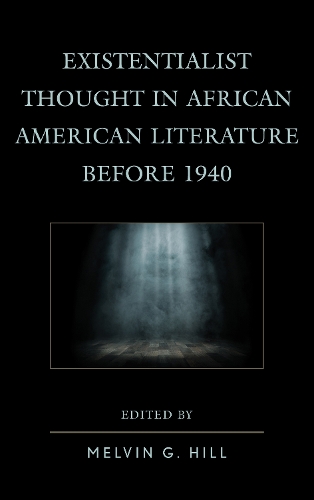
Existentialist Thought in African American Literature before 1940
(Paperback)
Available Formats
Publishing Details
Existentialist Thought in African American Literature before 1940
By (Author) Melvin G. Hill
Contributions by Renee Barlow
Contributions by Chase Dimock
Contributions by Timothy Golden
Contributions by Jeannine King
Bloomsbury Publishing PLC
Lexington Books
15th September 2017
United States
Classifications
Tertiary Education
Non Fiction
Ethnic studies / Ethnicity
810.9896073
Physical Properties
Paperback
108
Width 152mm, Height 220mm, Spine 9mm
177g
Description
Existentialist Thought in African American Literature Before 1940 is the first collection of its kind to break new ground in arguing that long before its classification by Jean-Paul Sartre, African American literature embodied existentialist thought. To make its case, this daring book dissects eight notable texts: Frederick Douglasss Narrative of the Life of Frederick Douglass (1845) and My Bondage and My Freedom (1855), Sojourner Truths Aint I A Woman (1861), Harriet Jacobss Incidents in the Life of A Slave Girl (1861), Sutton E. Griggss Imperium in Imperio (1899), James Weldon Johnsons Autobiography of an Ex-Colored Man (1912), and Nella Larsens Quicksand (1928) and Passing (1929). It explores and addresses a wide range of complex philosophical concepts such as: authenticity, potentiality-for-authentic living, bad faith, and existentialism from the Christian point of view. The use of interdisciplinary studies such as gender studies, queer studies, Christian ethics, mixed-race studies, and existentialism, allows the authors within this book to lend unique perspectives in examining selected African American literary works.
Author Bio
Melvin Hill is associate professor of English at the University of Tennessee, Martin.
